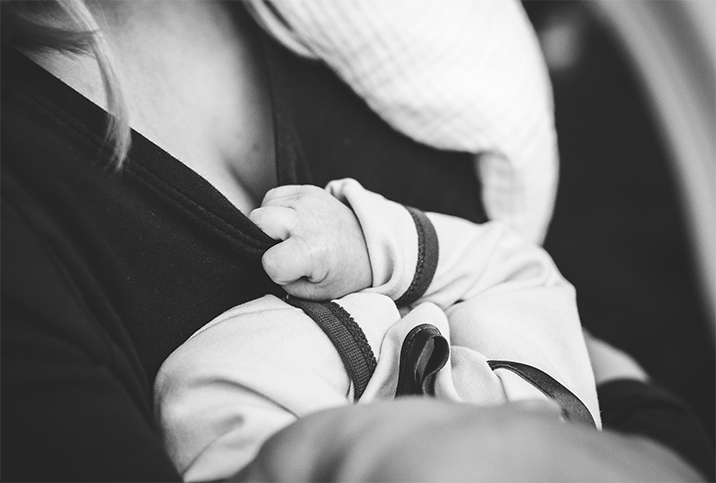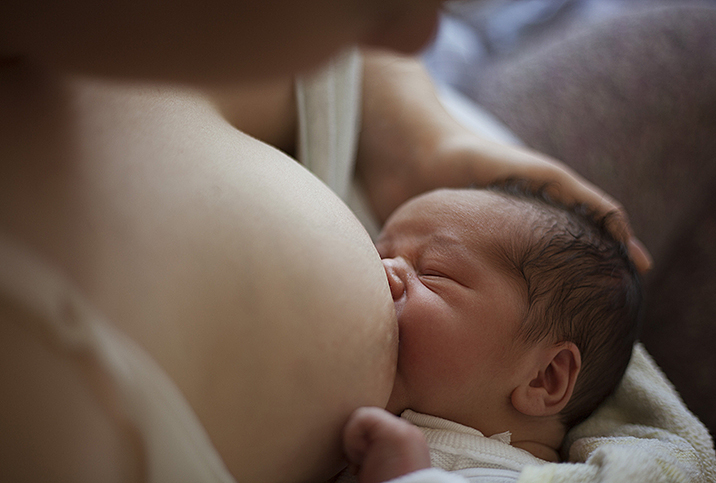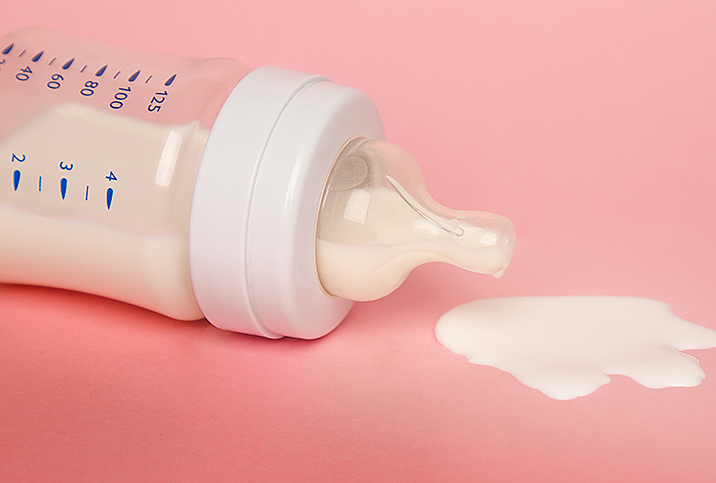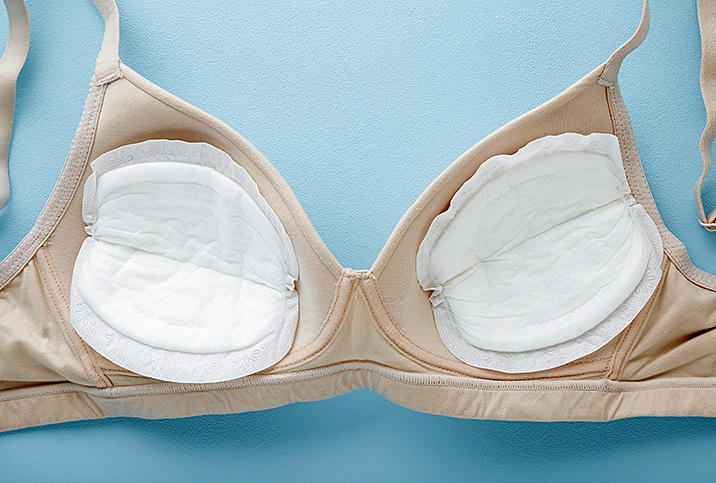Breastfeeding Linked to Lower Incidence of Breast Cancer

The benefits of breastfeeding for newborn infants are well known, but breastfeeding may also provide substantial benefits to the health of the mother.
Mothers who breastfeed appear to be less likely to develop breast cancer, according to multiple studies, though doctors are not sure why.
"Those who breastfeed have a lower incidence of breast cancer than those who do not," said Deanna J. Attai, M.D., an associate clinical professor in the Department of Surgery at the UCLA David Geffen School of Medicine and UCLA Health Burbank Breast Care. "I do not know the mechanism by which this occurs, and in any one individual, the risk of breast cancer is related to many factors, not just breastfeeding."
And it's not just breast cancer—women who breastfeed also have a decreased risk of ovarian cancer, according to Bill Louis, M.D., OB-GYN at AdventHealth Central Texas.
"The reason behind it is still being assessed, but data shows there is a definite decrease in cancer with breastfeeding mothers. There has been no explanation that I can tell you that offers a definitive reason. It's just something we are aware of, and as far as what part of breastfeeding increases that protection, we don't know."
It is possible that other mechanisms of pregnancy besides breastfeeding decrease cancer risk.
"There is some evidence that those who breastfeed have lower rates of breast cancer, though it is not clear whether this is due to the breastfeeding itself, or by the regulation of hormones through pregnancy," said James Stoeckle, M.D., a clinical fellow in hematology and oncology at New York University (NYU).
Breastfeeding is just one of many factors in the risk of developing breast cancer that depend on the individual, Attai said.
Globally, only 36 percent of babies are breastfed, according to the World Cancer Research Fund. The American Institute for Cancer Research (AICR) advises women to breastfeed for their own health and for the healthy growth of their baby.
And it's not just breast cancer—women who breastfeed also have a decreased risk of ovarian cancer, according to Bill Louis, M.D., OB-GYN at AdventHealth Central Texas.
For mothers who are having difficulty producing breast milk, there is a prescription that may help, Louis said. "A physician can give a mother stimulants to start it. Prolactin is quick to initiate breast milk production. We use it for labor induction. It's a hormone that is used to cause a uterus to contract. When the mother's nipples are stimulated, it produces prolactin, which causes the [breast to] produce more milk."
Of course, cancer risk factors vary and, as in the case of Jessica Leonard, breastfeeding is not a guarantee. The Tucson, Arizona, resident discovered she had breast cancer after breastfeeding the second of her two daughters.
"As I was weaning her, it was my first full night where I did not breastfeed her. I got a really bad case of mastitis and was put on antibiotics. Then, a few weeks later, I felt a lump, which I attributed to the mastitis," said Leonard. "Six months went by before I decided to finally look into it. I got an abnormal mammogram, a biopsy and then my diagnosis."
Leonard, 35, whose children are now 1 1/2 years old and 4 1/2 years old, had a double mastectomy. But for her, breastfeeding was still the right choice.
"I decided that I would breastfeed because it's the most natural route and the antibodies that my babies would get from my breast milk are extremely beneficial," she said.
Overall, because mammograms or MRI exams are not normally performed during pregnancy, Attai recommends breast awareness: "Be alert for any changes, follow a healthy, balanced diet, get regular exercise and maintain a healthy body weight.
"Be aware of your family history," Attai concluded, "and if there is breast, ovarian or other cancers in the family, discuss with your doctor if genetic testing or enhanced surveillance to a mammogram with MRI or ultrasound is recommended."

















